UK heatwave: Britons scramble to beaches from 6am as sweltering 35C high looms
Temperatures could reach 35C in London, according to forecasts
Britons have flocked to beaches as early as 6am this morning as temperatures are forecast to reach 35C in parts of the UK.
Swimming pools, parks and beaches across parts of south and east England are already packed as a heatwave grips the nation, already bringing two consecutive hottest days of the year this week.
Thursday was officially the hottest day of the year so far as the temperature reached 29C, but that record is likely to be surpassed later this afternoon with possible highs of 35C in London as the capital reached 26C by 10am on Friday.
Elsewhere, temperatures can expect highs of 32C in Norwich, 31C in Birmingham, 29C in Southampton, and 27C in Cardiff.
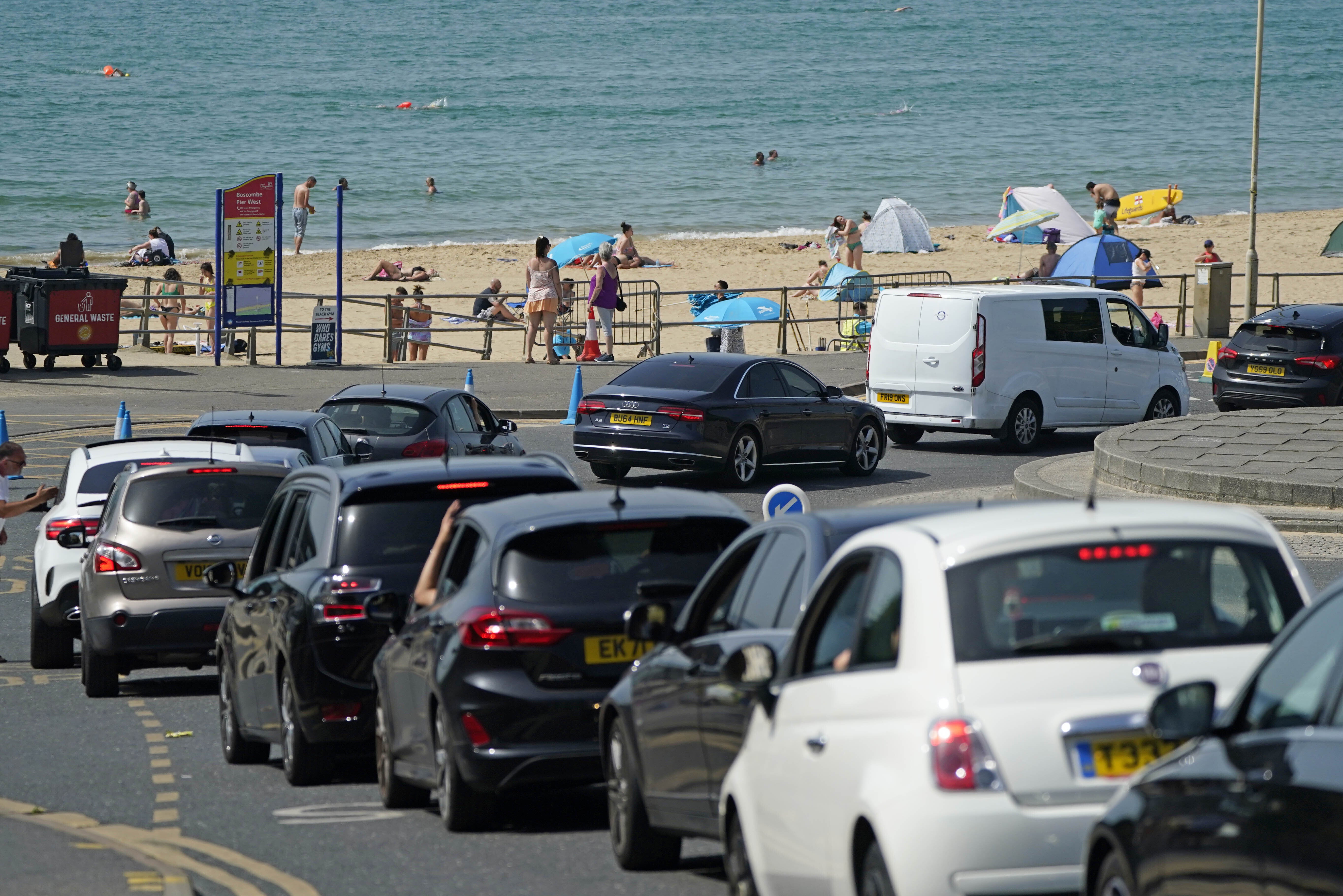
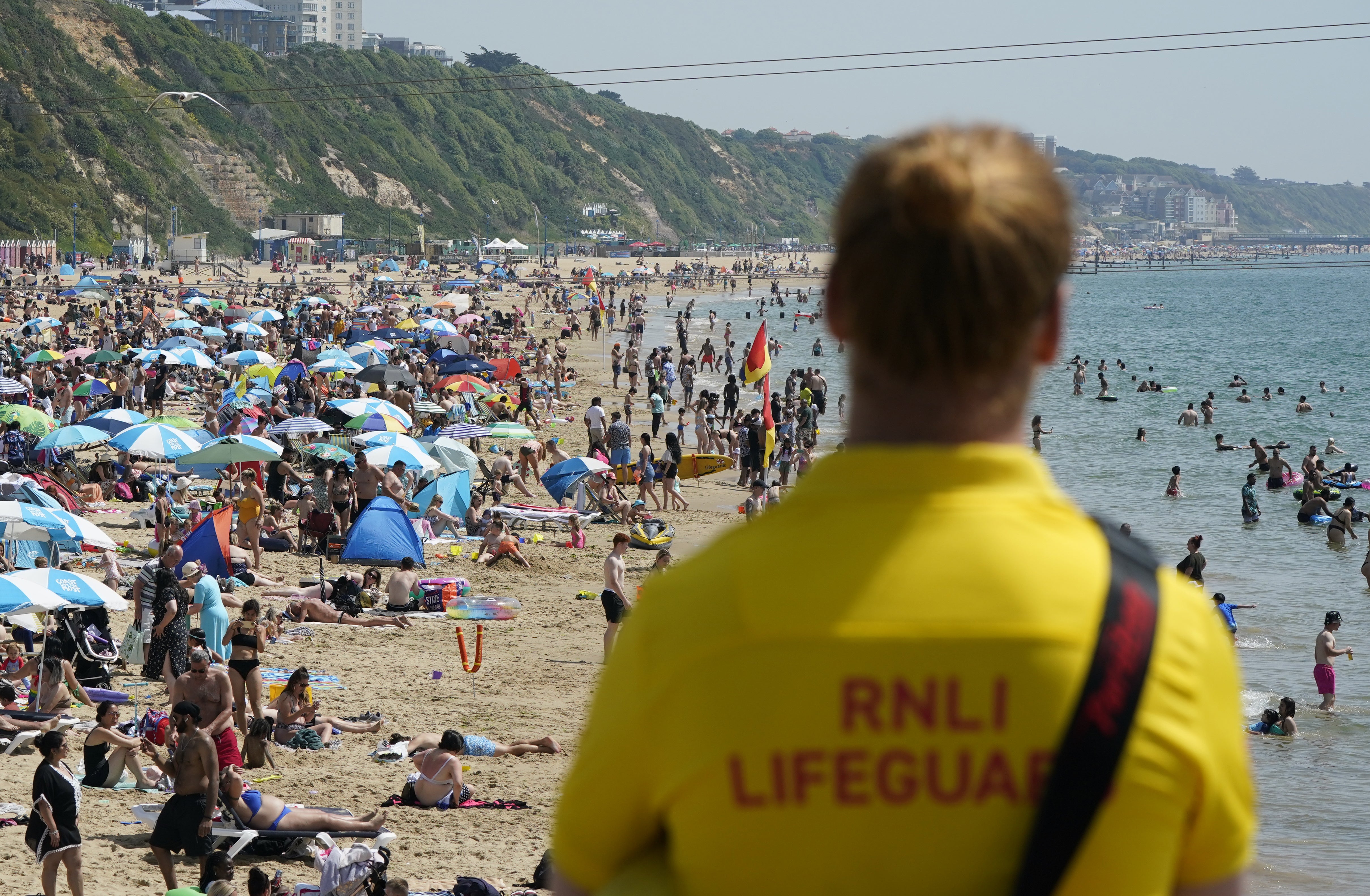
Images from Bournemouth beach in Dorset show Britons arriving in the early morning with deck chairs and umbrellas.
On Wednesday a Level 3 Heat-Health alert for London, the East of England and the South East was put in place to help protect health services, the UK Health Security Agency (UKHSA) has said.
Agostinho Sousa of the UKHSA told BBC Breakfast the alert is to help protect the NHS, adding: “The Level 3 alert is operational and called 'heatwave action'. It is to inform our partners that they should prepare their services for possible increases in demand due to increases in temperatures.
“We also have a Level 2 that is currently active in the South West and East of England that is to inform our partners that they should prepare their services in case they need to enter into action in case we see an increase in temperatures.
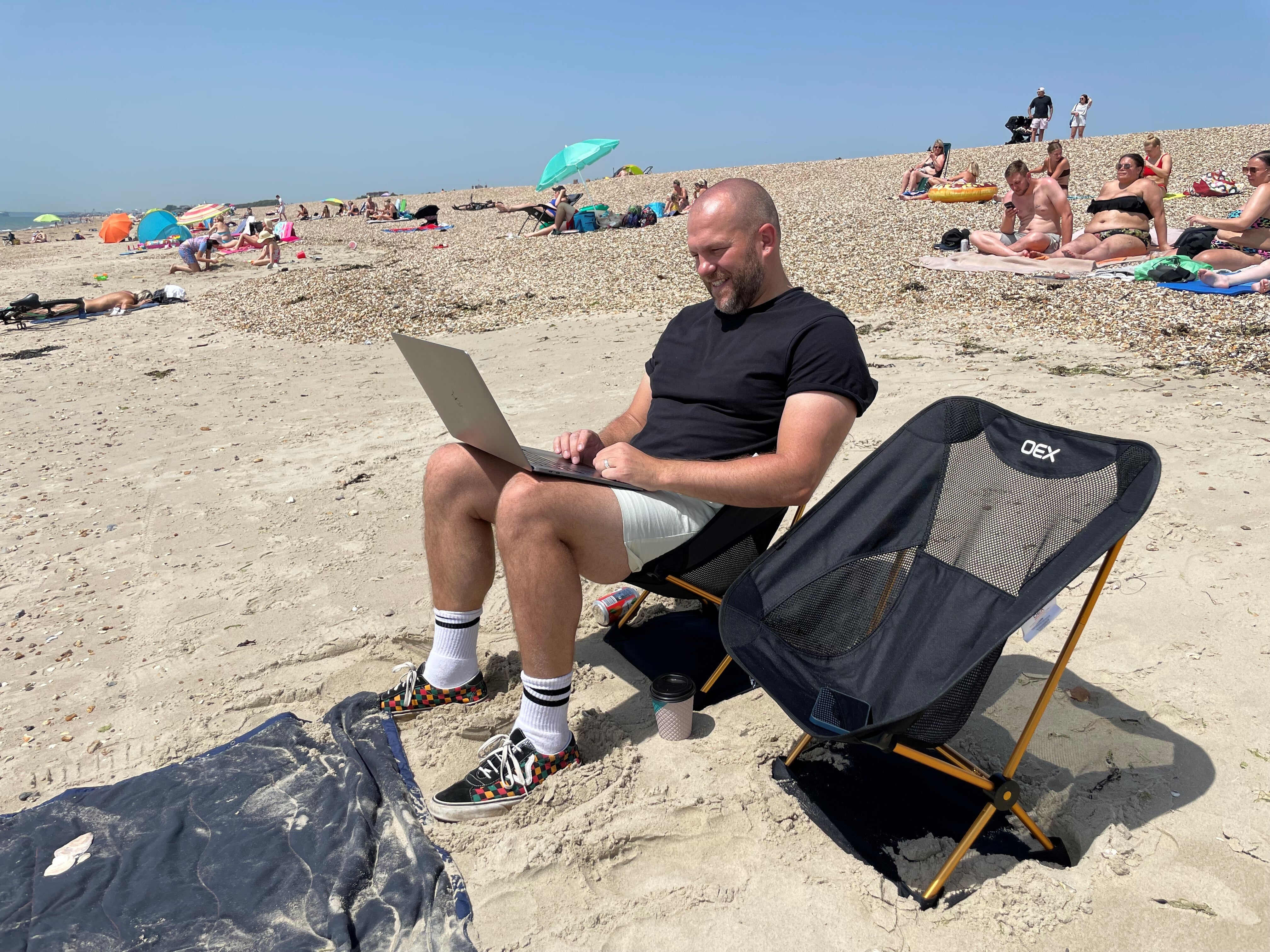
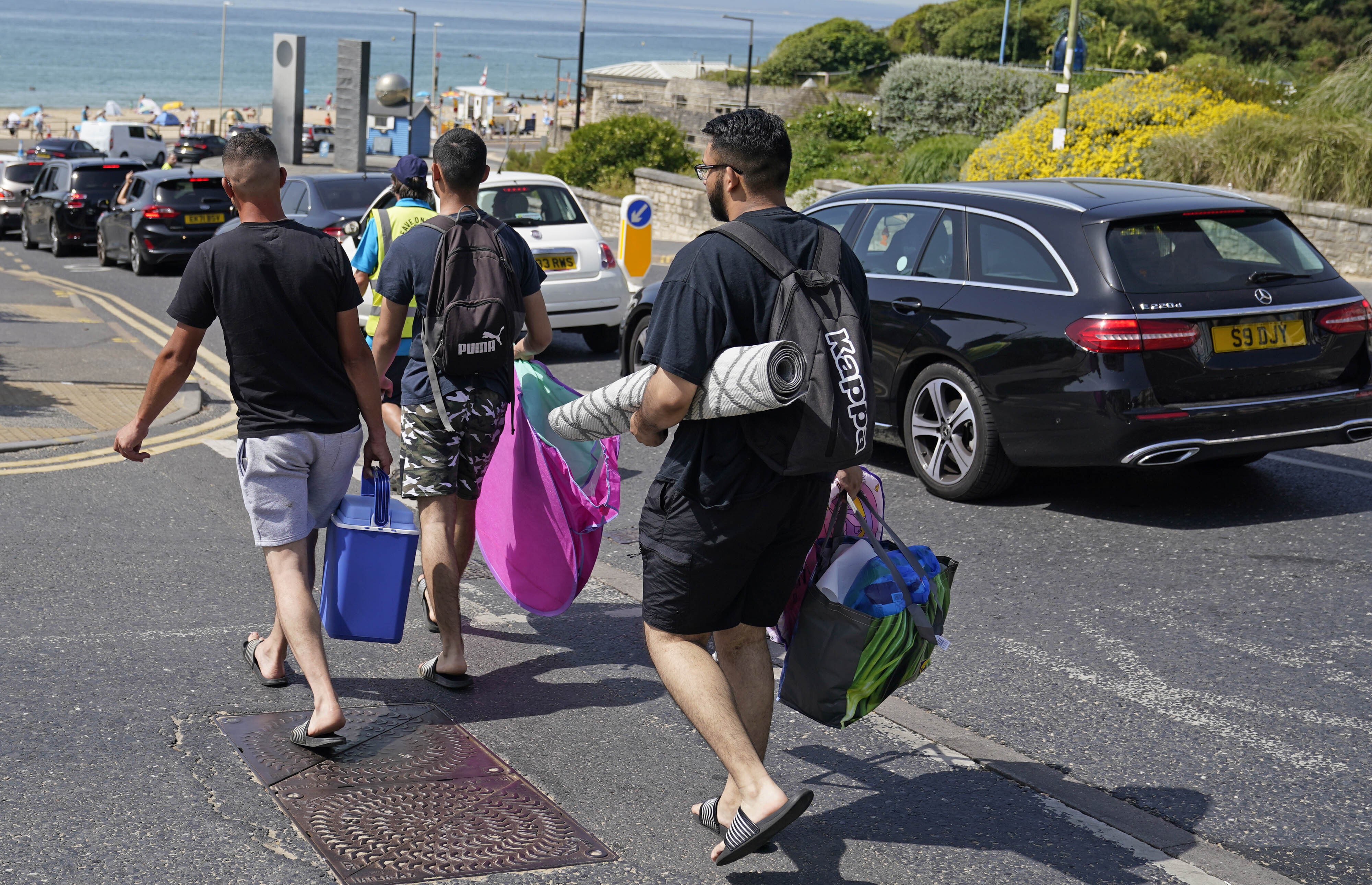
“Right now the situation is stable, and we expect the temperatures to drop tomorrow.”
As the weather heats up, a new study commissioned by the Royal National Lifeboat Institution (RNLI), revealed that 35 million people plan to visit the UK’s seaside and beaches from now until September sometime this summer.
Showing the soaring popularity of “Staycations” since the pandemic grounded flights and axed foreign holidays, 85 per cent of UK adults, aged 16-64, said they expect to visit the coat or beach this summer - up from 75 per cent last year.
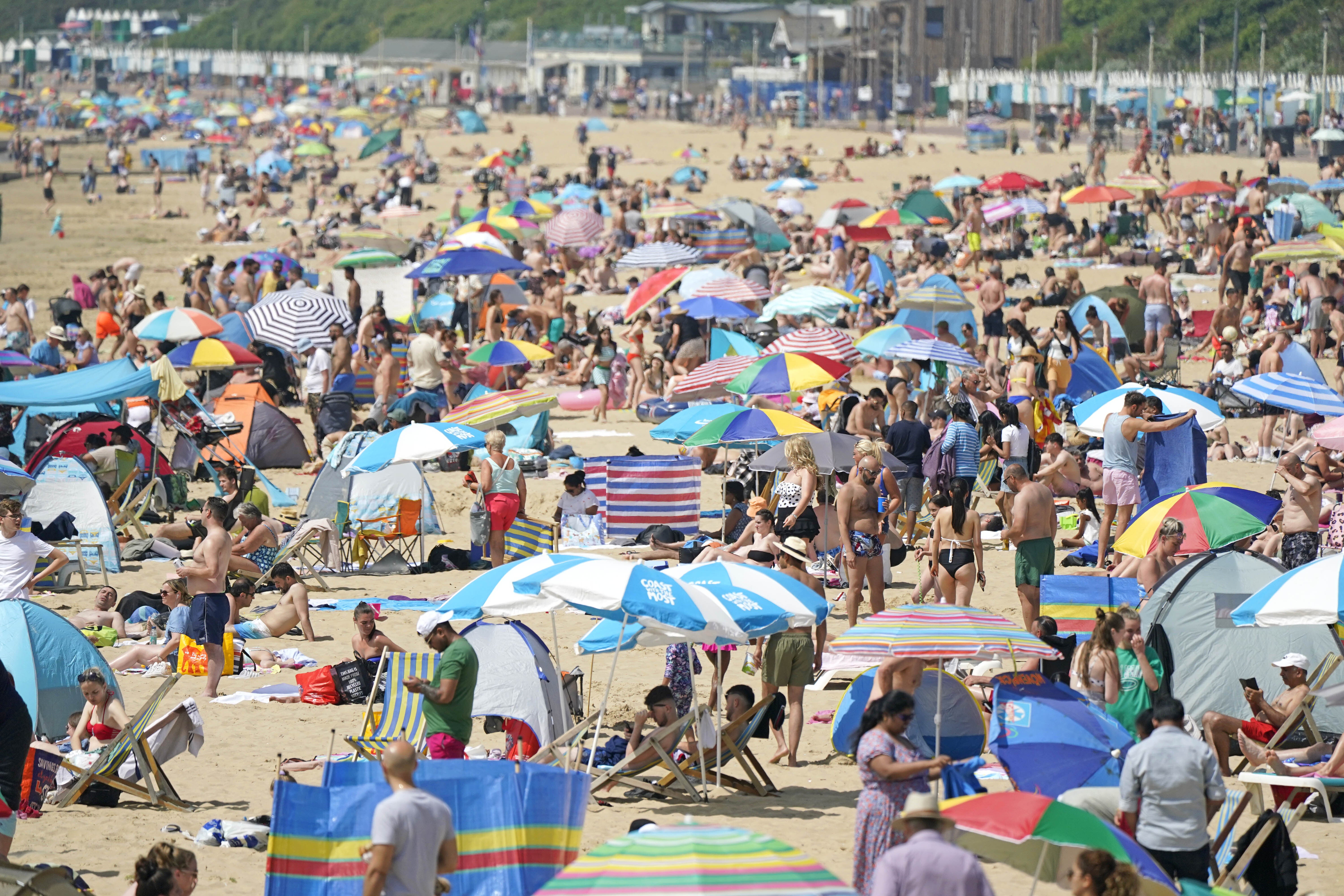
And it may not just be a day trip - as 42 per cent of Britons expect to flock to our sun-kissed coastline three times or more over the next three months.
The RNLI, supported by HM Coastguard, are so concerned with the potential seaside numbers they have reminded visitors of their “Float to Live” message - explaining what to do if we get into trouble in the water.
They urge anyone in difficulty in the water should lean back, using your arms and legs to stay afloat. Control your breathing, then call for help or swim to safety. In a coastal emergency, call 999 or 112 for the Coastguard.
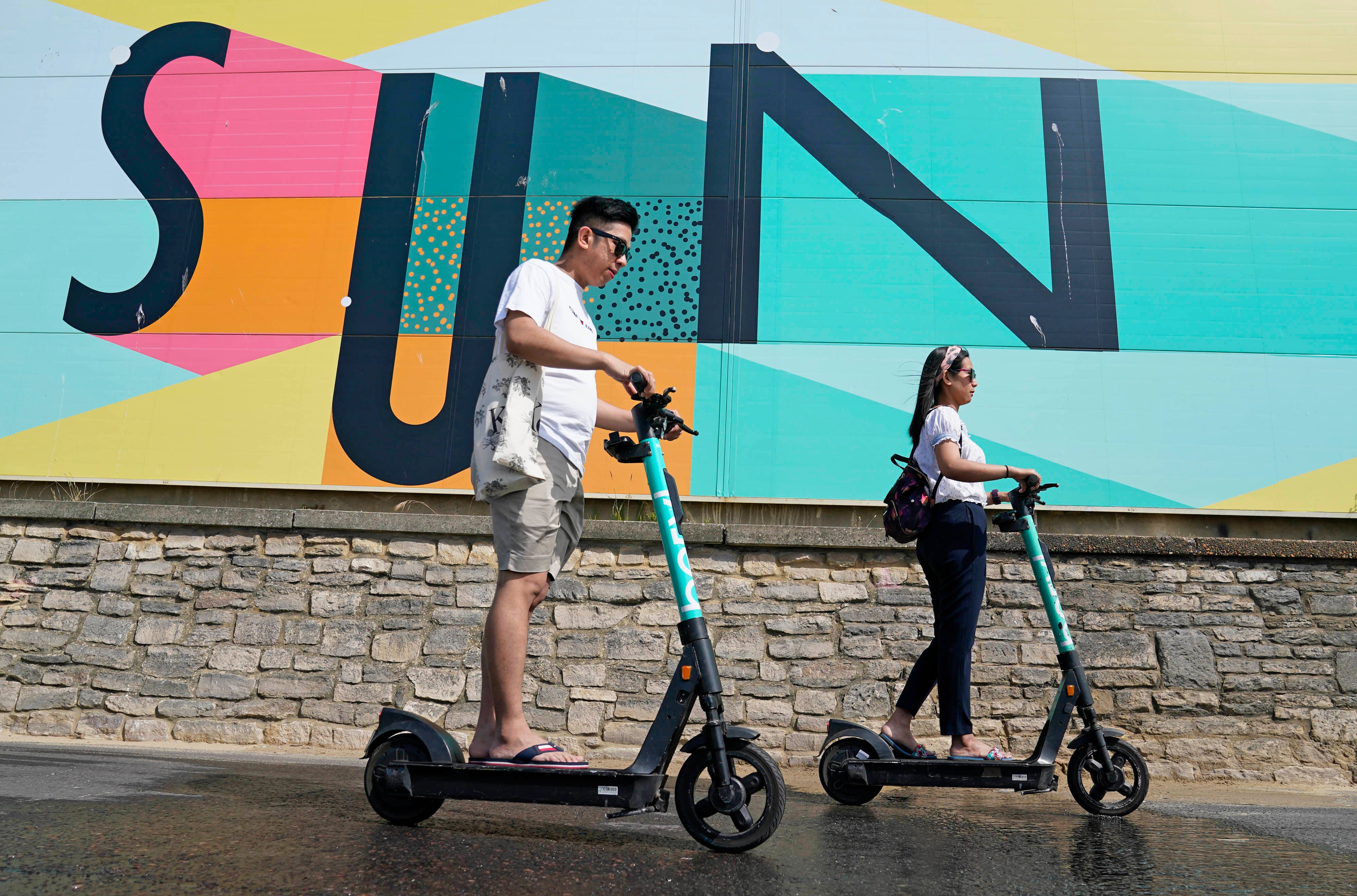
Gabbi Batchelor, Water Safety Education Manager at the RNLI said: “With summer arriving and a heatwave forecast, we want to remind everyone to stay safe at the coast.
“It is important that anyone visiting the coast understands the risks of the environment. It can be very unpredictable, particularly during early summer when the risk of cold water shock significantly increases, as air temperatures warm but water temperatures remain dangerously cold.
“If you get into trouble in the water, Float to Live: lean back, using your arms and legs to stay afloat. Control your breathing, then call for help or swim to safety. In a coastal emergency, call 999 or 112 for the Coastguard.”
Join our commenting forum
Join thought-provoking conversations, follow other Independent readers and see their replies
Comments
Bookmark popover
Removed from bookmarks